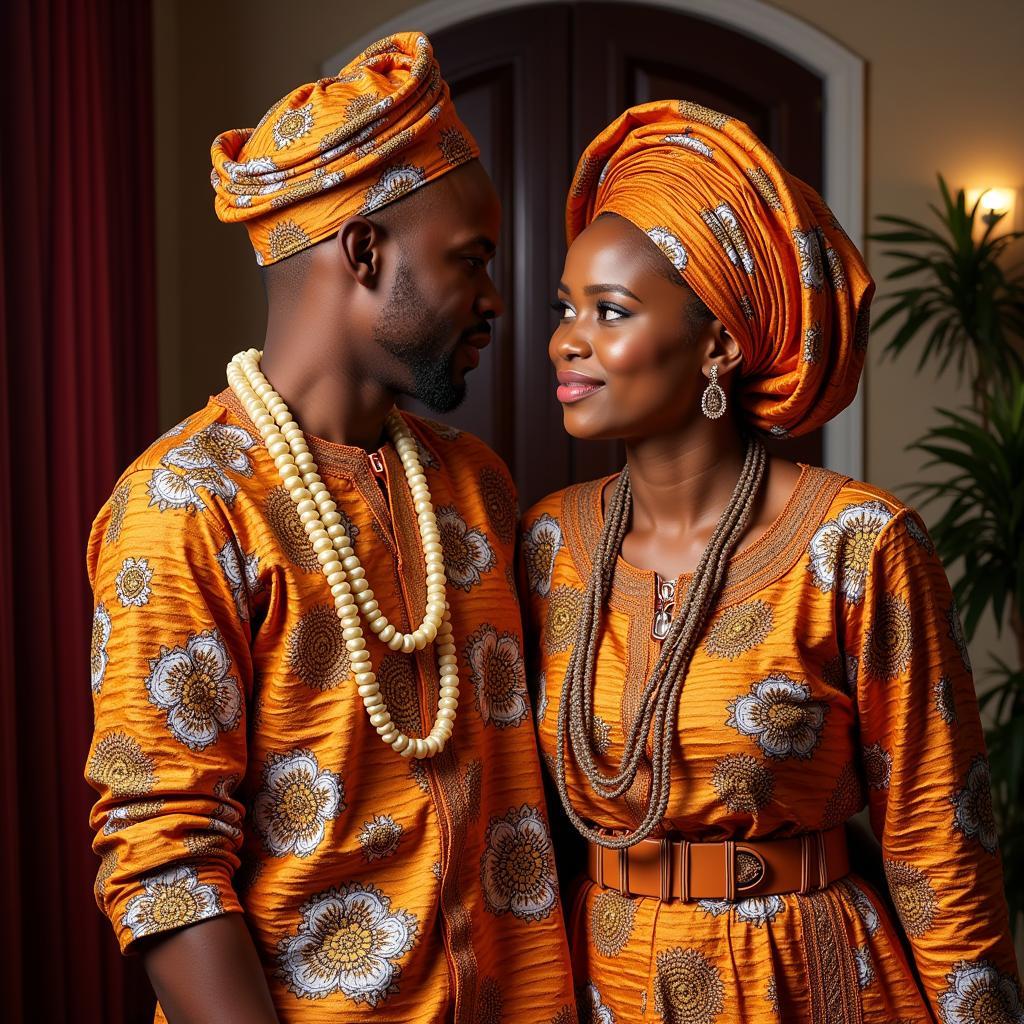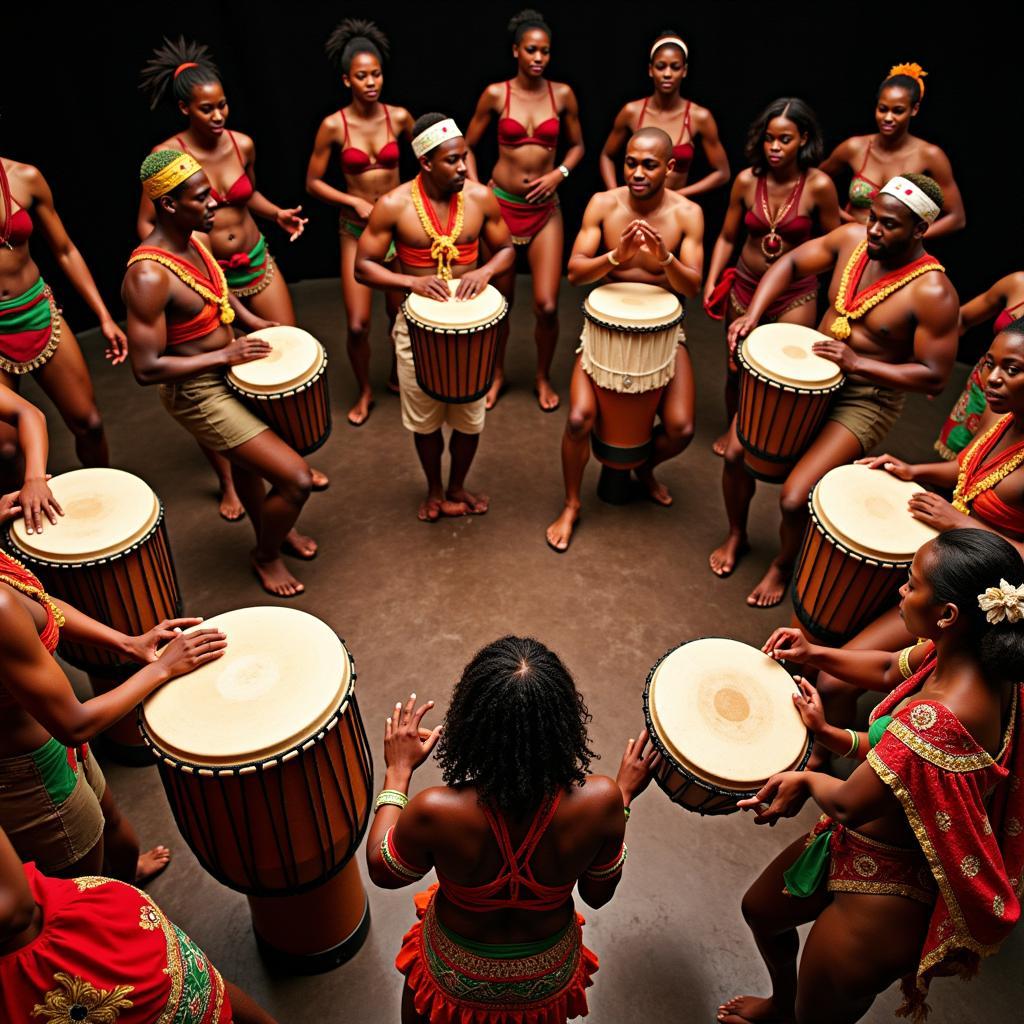Unveiling the Mystery of “African Cava”: A Deep Dive into Cultural Misconceptions
The term “African Cava” presents an intriguing puzzle for anyone interested in African culture. While “cava” instantly brings to mind the sparkling Spanish wine, its connection to Africa is less clear. This exploration delves into the cultural crossroads of the term “African cava”, examining potential meanings and addressing the need for accurate representation of diverse African traditions.
Navigating the Misnomer: Is There Such a Thing as “African Cava”?
The simple answer is no, “African cava” is not a recognized term within any specific African culture or language. The use of “cava” likely stems from a misunderstanding or a misnomer, highlighting the importance of careful research when encountering cultural references.
Exploring Possible Interpretations of “African Cava”
While “African cava” might not have a direct equivalent, it’s possible that the phrase is used colloquially to refer to certain African beverages or cultural practices. Let’s explore some potential interpretations:
-
Traditional Alcoholic Beverages: Africa boasts a rich tapestry of traditional alcoholic drinks, often made from fermented fruits, grains, or honey. It’s possible that “African cava” is a misnomer for one of these beverages, reflecting a lack of familiarity with specific cultural terms.
- Palm Wine: This popular drink, made from fermented palm sap, holds cultural significance in many West African countries.
- Millet Beer: Common in parts of East Africa, this beer is brewed using fermented millet and sorghum.
- Banana Beer: Found in East and Central Africa, this sweet and slightly tart beverage is made from fermented bananas.
-
Cultural Rituals and Gatherings: “African cava” could potentially be a misinterpretation of a cultural ceremony or ritual that involves a special drink. Many African communities have ceremonies that use beverages to symbolize unity, hospitality, or spiritual connection.
- Libation Ceremonies: These rituals, common across various African cultures, involve pouring a drink as an offering to ancestors or deities.
- Weddings and Celebrations: Special beverages often play a central role in marking important life events and fostering community bonds.
The Importance of Cultural Sensitivity and Accuracy
The misuse of terms like “African cava” highlights the critical need for cultural sensitivity and accurate representation. Africa is not a monolith, but a continent of 54 distinct countries, each with its own unique customs, languages, and traditions.
When exploring topics related to Africa, it’s crucial to:
- Conduct thorough research: Go beyond superficial understanding and delve into the specifics of different cultures and regions.
- Use appropriate terminology: Refer to cultural elements by their proper names and avoid generalizations.
- Seek out authentic sources: Learn from individuals and communities who represent the cultures you are engaging with.
Continuing the Journey of Cultural Discovery
While the term “African cava” might stem from a misunderstanding, it presents an opportunity to embark on a journey of cultural exploration. By approaching African cultures with respect, curiosity, and a commitment to accuracy, we can deepen our understanding and appreciation for the continent’s incredible diversity and rich heritage.
Let’s continue to learn, appreciate, and celebrate the multifaceted beauty of Africa, one authentic experience at a time.
FAQs
- What are some popular non-alcoholic drinks in Africa? Many delicious non-alcoholic options exist, including Hibiscus tea (bissap), ginger drinks (ginger beer, tangawizi), baobab juice, and various fruit juices.
- Are there any African beverages used in traditional medicine? Yes, several drinks, like rooibos tea from South Africa and various herbal infusions, are believed to have medicinal properties.
- Where can I learn more about authentic African beverages and their cultural significance? Online resources, cultural centers, and books specializing in African cuisine and culture are excellent places to start.
For further inquiries or assistance, please don’t hesitate to contact us at:
Phone Number: +255768904061
Email: kaka.mag@gmail.com
Address: Mbarali DC Mawindi, Kangaga, Tanzania
Our dedicated customer support team is available 24/7 to assist you.


